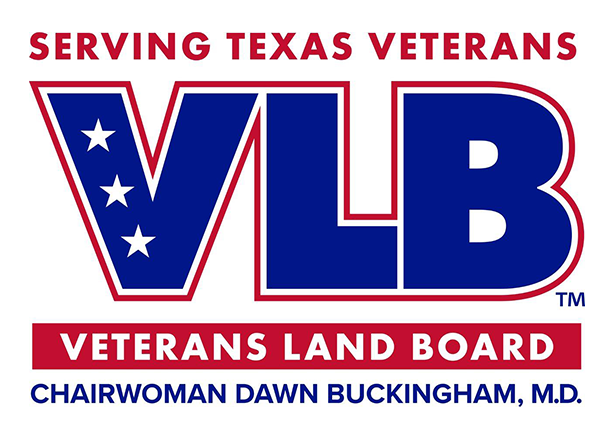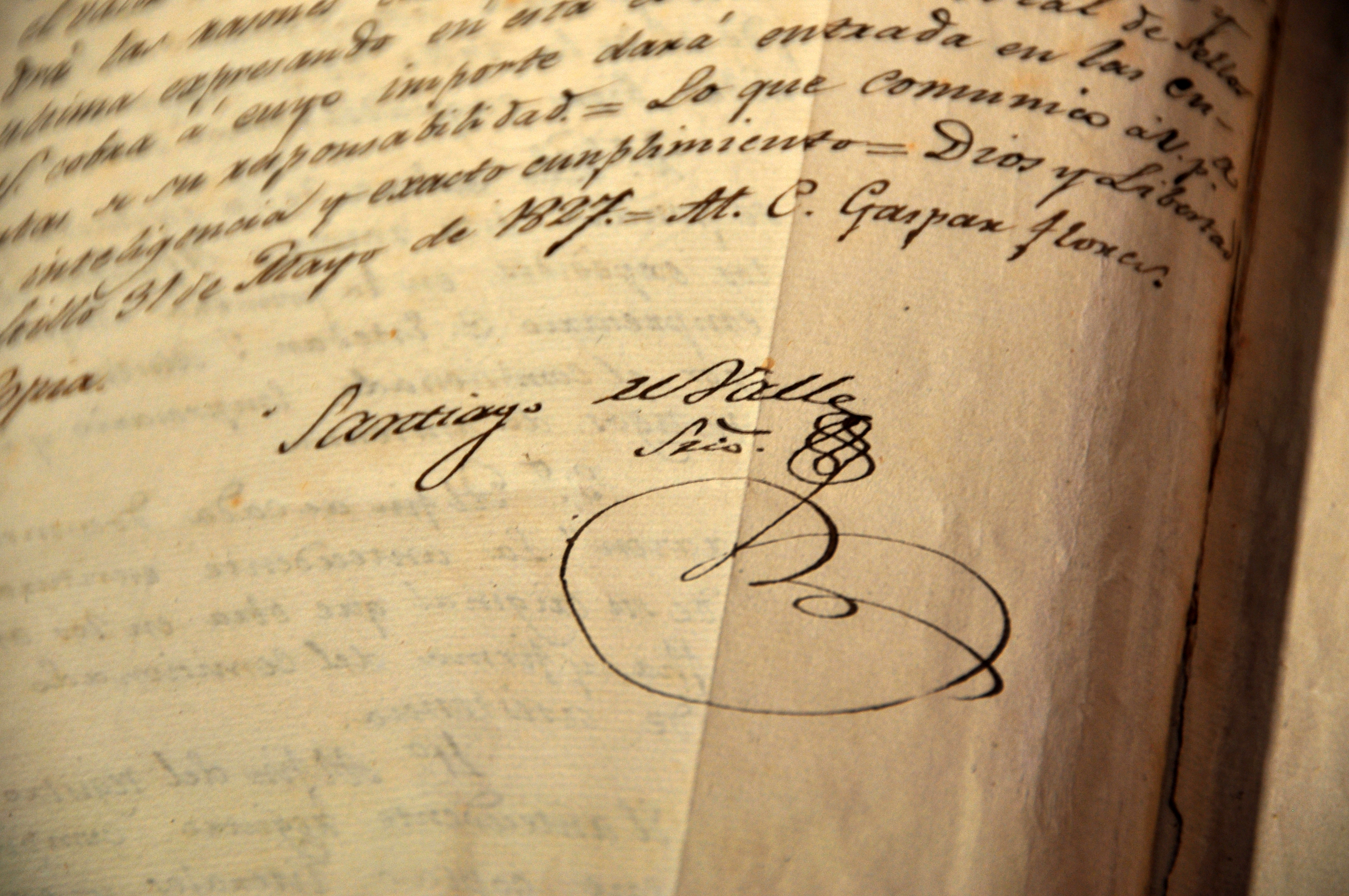AUSTIN — Today, Texas Land Commissioner and Veterans Land Board (VLB) Chairwoman Dawn Buckingham, M.D., is proud to introduce the next installment of the series highlighting the VLB's Voices of Veterans oral history program. This week, we highlight the service of Major John Keith Wells who served in the U.S. Marines and led the charge to raise the first American flag above Mt. Suribachi during the battle of Iwo Jima.
Born in Lakeview, Texas, which is located in the Panhandle about 90 miles southeast of Amarillo, Wells said he kept busy as a child, especially after his mother died of cancer when he was just ten years old.
"My father, we owned land and he also built a store in that little community town," Wells said about life in Lakeview. "It was a meat market, and we had a butcher house and butchered our own meat and sold it in the market, and that of course grew. My mother had cancer when I was very young, and so she died when I was 10. And so he and I batched, and I helped and worked, well we sold, it ended up we were selling just about everything."
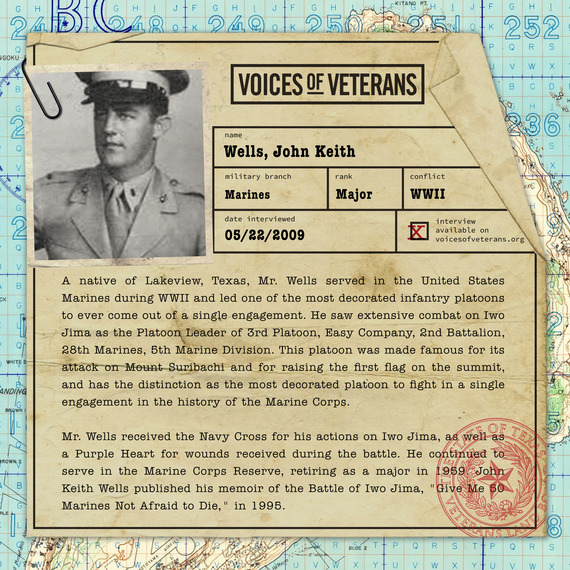
Wells said he was an only child and he learned quickly how to do things and began driving and making deliveries to customers from the meat market in town. His childhood also included an abundance of friends and he also excelled in sports, lettering in every sport he played. Following high school, Wells said he went to Texas A&M in College Station, a ride he hasn't forgotten to this day.
"He carried me down to Texas A&M, and I tell you, he didn’t have time, and that was a drive from up there all the way down there without, it was just dirt road 99 percent, and he took the big old chest of my equipment and set it in the grass out in
front of one of the dormitories down there and then he just went back home," he explained about the long road to A&M, just over 400 miles from home. "I had to take care of signing up and going to school down there."
While A&M was a military school, Wells said he didn't really enroll there with the intention of joining the military. He said one of his father's cousins went there and they had the best football team in the country. Not long after he got there, the war began and like most people in those days, they knew right where they were when they got the news.
"I had bought a small radio and had it racked up and it was on Sunday morning, and I was going to stay in school and do a little studying, and so I was studying and whatever, and turned that little radio on and all of a sudden it come on that Pearl Harbor was being bombed," Wells said, adding he knew he'd be headed to the war. "I
immediately contacted one of those Marines, and there just wasn’t many of them around, and talked to him and he, in a week or two he called me and he said say, there’s a Marine recruiting officer down on the coast, so I just hitchhiked down to Houston and found him and joined the Marine Corps."
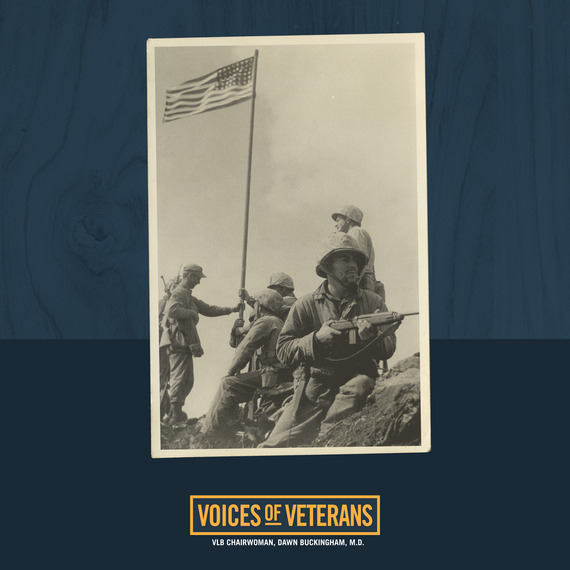
Wells said from the time was relatively short from when he signed up with the Marines and left for basic training. He said the relationship with his dad was always built on honesty and trust. Deciding to sign up and go to war was no different, it was a mindset of getting things done, just as he did growing up all those years in Lakeview.
"It’s hard to explain except that whenever I told him anything, he believed every word. I tried to be an excellent boy in one sense that I took care of the work that I did. I did all, I milked cows, I raised chickens, baby chickens myself, by myself you wouldn’t believe, and while I was growing up and when summer come and he couldn’t use me, why somebody could," he said.
Wells attended basic training on Parris Island, a training depot the U.S. Marines have used during each major conflict of the 20th and 21st Century. Following basic, Wells said they didn't go to infantry school like he thought, instead they were sent by train to Officer Candidate School at Quantico because at the time, the United States wasn't in control of the sea waters.
"They put us on a train and sent us to Quantico in this train and the train was blacked out, and hot, my gosh. Well we just, I just got down on the floor and laid in the dirt on the floor and there was no lights on the train and it was that type of thing. We pulled into Quantico, and I tell you, the people looked at us and we sure didn’t look like officers," Wells said.
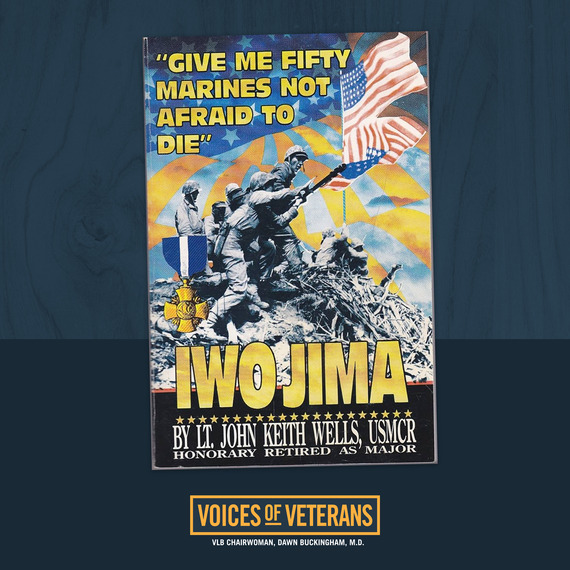
Wells said he went from Officer Candidate School at Quantico to Marine Parachute Training School in El Cajon, California. He vividly remembered his second to last jump in school when he broke his leg, but he didn't let that stop him from completing what he set out to do.
"I got to put my friends in my jump twice, got them to pack my chute for me, and then I went right out of the hospital right down, and picked up my chute, and so I just got in the truck and he hauled me down and they were already lining up," Wells explained "The officers looked at me, but I’d been helping them some in various things so they didn’t say anything, and I went ahead and jumped with that broke leg."
Following Marine Parachute Training School, Wells was deployed to Guadalcanal with the 1st Marine Regiment in December 1943. Once he returned, he was given command of the 3rd Platoon, Easy Company, 2nd Battalion, 28th Marines, 5th Marine Division, a platoon he would take to Iwo Jima. Wells was asked what he told his men before they went ashore ahead of what would be a historic battle for the history books.
"Well, they had already been with me and around me enough to know that I was different. I didn’t do it always by the number and they found out real quick when we hit the island." Wells said when asked what he told his platoon before they went ashore. "They found out real quick that we were gonna be doing probably whatever we’re doin’ there, we’re gonna be doin’ it a little bit different than anybody else, and that turned out to be true."
Wells and his team were quickly given the task of leading an assault at the base of Mt. Suribachi, an attack that resulted in Wells getting wounded and evacuated to a hospital ship.
"There was a big, big, big opening there, and of course all the weapons that you can think of that they would have, they had it zeroed, and that’s when they got me," Wells said about getting wounded.
Wells would escape the hospital ship, convincing a corpsman to supply him with sulfa powder and morphine so he could rejoin his platoon shortly after the first flag was raised atop Mount Suribachi. Once Wells reached the base of Mount Suribachi he was helped to the summit by one of the flag raisers, Charles Lindberg.
The story of heroism displayed on Iwo Jima that day has left a lasting impact in American history.
"We got the platoon on Iwo Jima, got one Congressional Medal of Honor, three Navy Crosses, one Silver Star, platoon sergeant promoted to lieutenant, and over 100 percent Purple Hearts," Wells recalled about the heroism on display when Iwo Jima was taken by his American forces. "We were the most decorated platoon ever to come out of a single engagement in the history of the United States."
To listen to Major John Keith Wells tell his story, click the button below:
RELATED: Voices of Veterans: Cmdr. James Groesbeck Shares His Story of Service with the U.S. Navy
RELATED: Voices of Veterans: Sergeant Gerald Counts Shares His Story of Service in the U.S. Army
Veterans can email VoicesofVeterans@glo.texas.gov to tell their stories. Please note that the Veteran must be a resident of Texas at the time of their interview.
Voices of Veterans is a state agency's first Veteran oral history program. It records the stories of Texas Veterans through their time in service and after returning home from combat.
The VLB records interviews with Veterans over the phone or in person. Their interviews are then permanently archived in the Office of Veterans Records at the GLO, where they join the historical documents of other Texas heroes such as Sam Houston, Davy Crockett, Jim Bowie, and William Barret Travis.
Veterans' interviews are also available to researchers, historians, genealogists, and the public. These precious records inspire future generations and remind us of our Veterans' sacrifices.
To listen to the over 500 archived stories of Veterans documented through the GLO's Voices of Veterans oral history program, click the button below:



